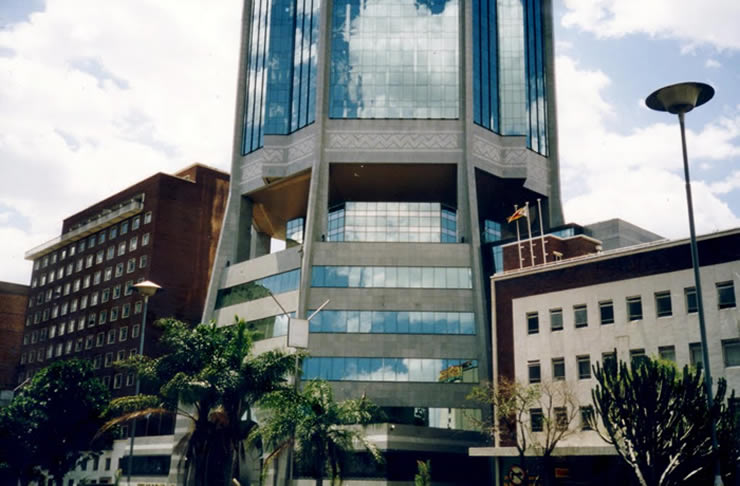
The Sunday Mail

THE Reserve Bank of Zimbabwe (RBZ) is this week expected to do away with prohibitive regulations that barred Money Transfer Agencies (MTAs) from remitting money outside the country in a move that will augment revenue streams to the fiscus.
Since 2004, RBZ has been tightening regulations making it impossible to send money outside the country.
The new regulations were to be effected by yesterday and earlier on last week RBZ Governor Dr John Mangudya had assured this paper that the ban will be lifted under reviewed exchange control regulations as outlined in the Monetary Policy Statement (MPS) last month.
The new exchange control regulations were set to be announced by yesterday, according to the MPS.
“In order to ensure that the country continues to benefit from international remittance inflows, the Reserve Bank has reviewed the current Exchange Control framework for international remittances and shall introduce an enhanced and integrated framework with effect from 1 April 2015.
“Under the new framework, Zimbabwean registered money transfer operators and bureaux de change shall be designated as Limited Authorised Dealers and shall now be allowed to conduct both inward and outward money transfers.
“The new Exchange Control framework for international person-to-person remittances shall be administered through the following three-tier system,” said Dr Mangudya.
The RBZ will also announce monthly caps on the amount of money people are allowed to export as MTAs had previously castigated the ban arguing that there were regulations that would allow individuals to take a maximum of US$10 000 per person per trip.
Licensing arrangements under the Exchange Control (Money Transfer Agency Order), Statutory Instrument 77 of 2004 and the Exchange Control (Money Transfer Agencies Amendment) Order, 2004 (No. 1) saw measures that were meant to influence the administrative, operational and legal framework for the transfer of foreign currency, especially from the Diaspora. Outbound money transfers were banned in order to curb leakages of foreign currency.
The Bank Use Promotion and Suppression of Money Laundering Act (Chapter 24:24) was subsequently promulgated in 2004.
Dr Mangudya said post-September 11, 2001 dispensation, after attacks on the United States of America resulted in additional measures targeted at stricter controls on the flow of money in and out of Zimbabwe, which have since been addressed by RBZ in the new exchange regulations.
“In order to enhance monitoring and accounting of international remittances as well as mitigating against money laundering and terrorist financing, the Reserve Bank of Zimbabwe shall employ a robust compliance monitoring framework including electronic surveillance and reporting or such electronic platform that the central bank may designate for the purpose. All licensed dealers shall be required to participate and contribute to the establishment of the integrated and centralised payment gateway system,” said Dr Mangudya
But over the years, the regulations have inadvertently affected the movement of money.
Locals have had to rely on the Visa and Master Card systems that are offered by banks. The systems were often plagued by bureaucracy, red tape and unreliable systems. MTAs leverage on their ability to offer instant money transfers.
Western Union Zimbabwe franchise holder Mr Fred Mutanda said they were yet to receive communication from the RBZ but welcomed the move and described it as a “stepping stone” in the financial sector to allow outbound money transfers.
The Zimbabwe Revenue Authority (Zimra) estimates that the country could be losing up to US$3 billion annually due to the unregulated movement of cash across borders following the adoption of the multi-currency regime in 2009.
According to RBZ, total remittances from the Diaspora amounted to US$840 million in 2014, compared to US$790 million realised in 2013.
According to a Finscope Consumer Survey, remittances made via family and friends account for 58 percent of all transfers, while 17,5 percent use other informal channels.
First National Bank of South Africa last year claimed that research had indicated that Zimbabweans in SA remit about R6,7 billion or US$620 million a year, with a fifth of the amount spent on transfer costs.
By end 2006 Zimbabwe had more than 16 MTAs – Fedex; POSB; Stanchart; NMB Bank; TransAfrik; Dollarway; CABS; Stanbic; ZIMPOST; I and F; Pacific; Banfords; CBZ and Parlovan.
However, Western Union and Money Gram have become dominant over time. Zimbabwe has been struggling to raise enough foreign currency after a dip in exports key industries have been forced to shut down or downscale operations.




